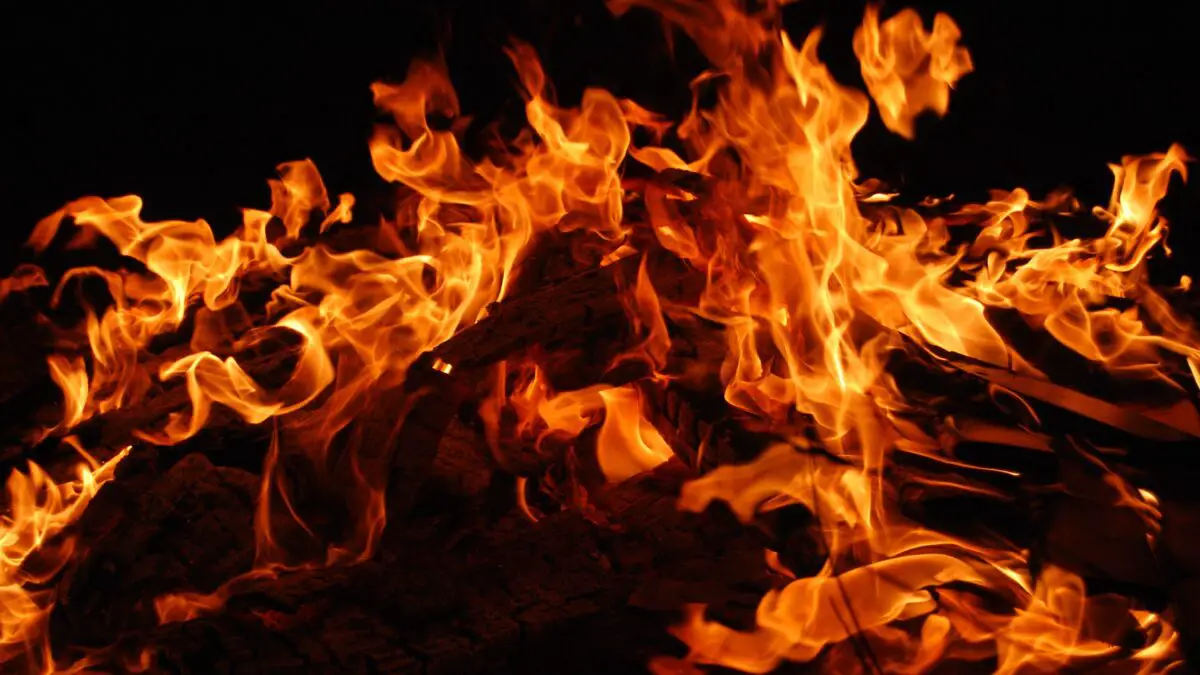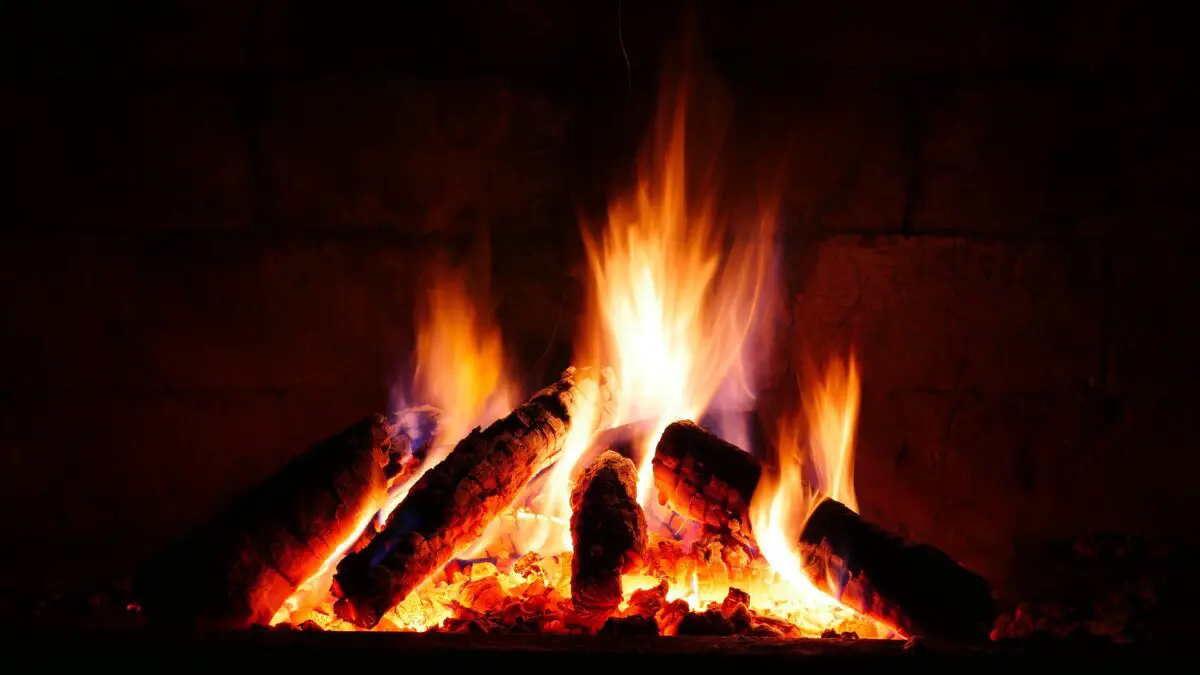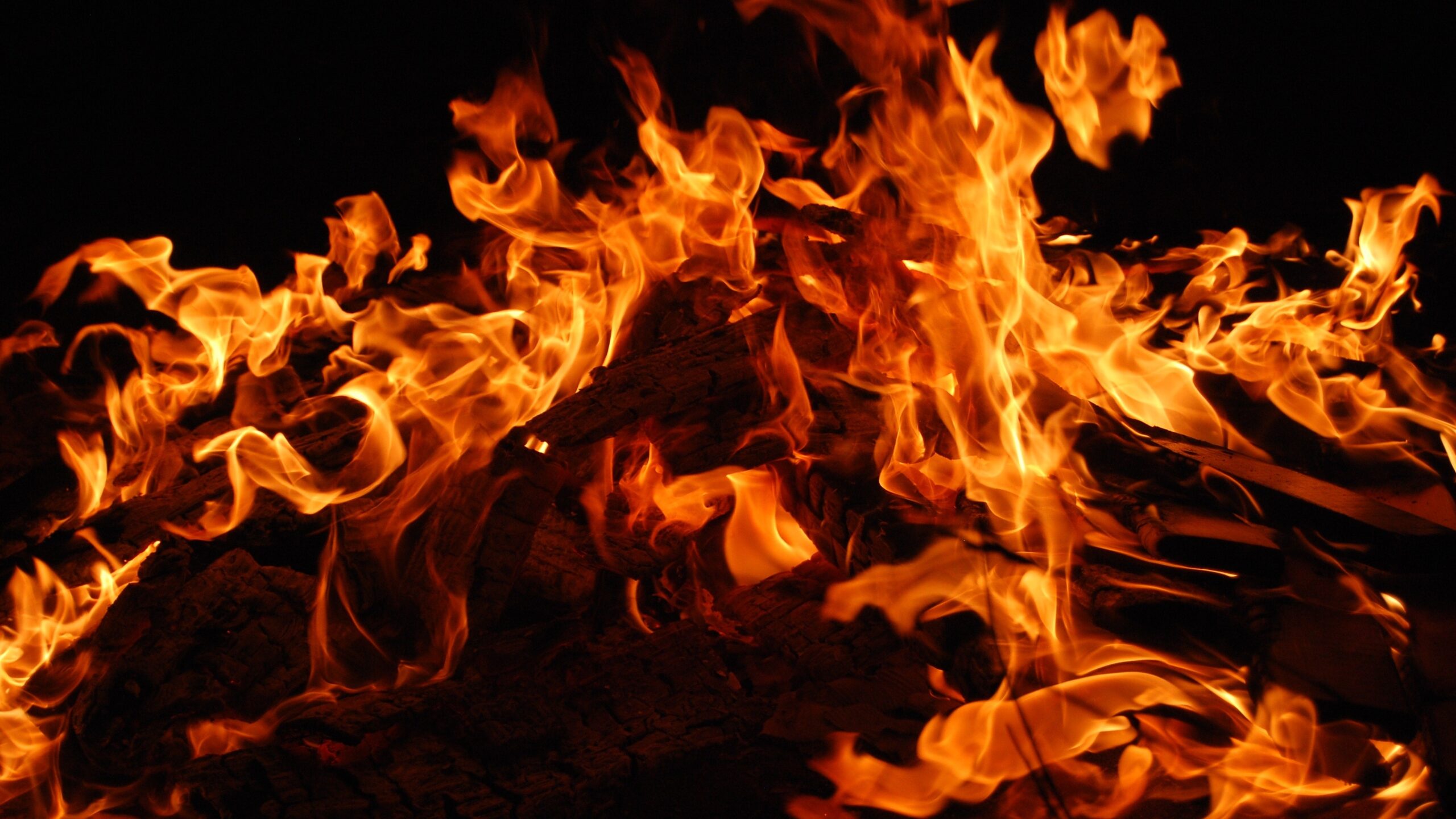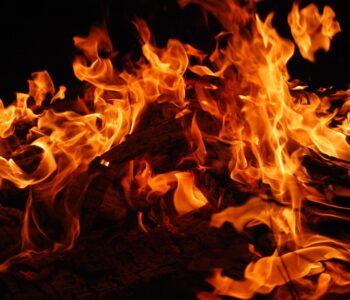If you’re looking for either fire idioms or idioms about burning, this list covers all of the most common ones, plus a few you may not have heard before. Each expression comes with a definition and example sentence to give better context.
It’s good to understand what English idioms are and how to use them, since they crop up a lot in everyday conversation.

Fire idioms
Baptism by fire
Hopefully, nothing on this list of fire idioms will be a baptism by fire for you! This is when you have a very trying and difficult first experience or induction to something, and you weren’t really prepared for it.
“I have to say that today was an extremely busy first day. Talk about baptism by fire!”
Fire in your belly
Some fire idioms may not have good meanings but to be described as having a fire in your belly is a good thing. Such a person has a strong will to succeed; they are ambitious and determined.
“I think Joe will go far in the company. I can see the fire in his belly.”
All fired up
When you are feeling very excited and eager about something you could say you are all fired up. You are ready, willing, and able, and can’t wait to get started with the task ahead of you.
“Look at the football team. They really are all fired up for this game and it’s great to see.”
Don’t confuse this with firing something up, which means starting it with an ignition (e.g. a grill or an engine).
A surefire way
Going through this list of fire idioms and their explanations is a surefire way of helping you understand their meanings. This means that it is certain to succeed, be effective, or help in some way.
“Training hard, like you are, is a surfire way to win gold in 2026!”
Dumpster fire
‘Dumpster’ is an American term for a large garbage bin used to collect and transport waste. You could start a fire in one, but that’s not what this idiom is about. In fact, a dumpster fire is an exaggerated way of describing something that has gone comically or chaotically wrong!
“That lesson was a dumpster fire. The teacher was late, he had the wrong notes, and then there was a fire drill and I fell down the stairs!”
Fire away
The verb ‘to fire’ can mean to pull the trigger on a gun. And yes, sometimes in a movie you may hear the order to fire away, meaning to start shooting.
However, this expression is more likely to be used day-to-day as an instruction or invitation to commence talking or asking questions.
“Well, that was a lot of information, so if you have any questions, please, fire away!”
We have lots more interesting idioms about talking on a separate page.
In the firing line
Here’s another phrase using ‘fire’ in the sense of shooting. If you are in the firing line, sadly it means you are going to get into trouble; perhaps even get attacked or fired (removed from a job). The thing that caused this situation may or may not be your fault.
“The politician is now in the firing line due to the pictures published in the paper!”
“I’m so angry with Robert. He made those comments about our boss but somehow I’m in the firing line.”
This expression may also be changed slightly to in the line of fire, but this still means the same thing.
“I’d keep quiet if I were you, unless you want to put yourself in the line of fire.”
Pour fuel/gas/gasoline on the fire
British English speakers say ‘fuel’ or ‘gas’ in this fire idiom whereas American English speakers say ‘gasoline’. This is one of the many British vs American word differences.
Either way, when you pour gas on the fire you are doing or saying something to make a conflict between other people worse or more tense.
“Don’t say anything. They last thing they need is for you to pour gasoline on the fire!”
This is just one of many idioms we use in English to describe good and bad relationships between people.
Hang fire
If you need a fun way to ask someone to wait (perhaps for a decision or for further instructions) then just ask them to hang fire.
“Can you just hang fire, James, and I’ll let you know tomorrow.”
You can also use this phrase to describe something that is being delayed or awaiting action:
“Our project is hanging fire until we get the go-ahead.”
Light a fire under (someone)
There are many times you may need to light a fire under someone. It may sound like a mean thing to do, but it actually means you are motivating them to work harder, take action, or be more enthusiastic. Just imagine if someone actually did light a fire under you; you would certainly want to get up and move!
“The team have been a little unproductive lately so I’m hoping this promise of bonuses will light a fire under them.”
If this is something you need to do, you may find these motivational idioms helpful as well.
No smoke without fire
You may use this idiom about smoke when you are suspicious about someone or questioning their innocence.
To say that there is no smoke without fire is to say that there is probably a good reason why bad things are being said about someone. It suggests that some part of the rumor or accusation may be true.
“Honestly, I always say there’s no smoke without fire. If he didn’t steal that car, I bet he stole another!”
Out of the frying pan, into the fire
Out of the frying pan, into the fire is an expression you can use when you wish to comment that the current situation is worse than the previous one.
“I wish I’d never moved out of my parents’ house; my new housemates are a nightmare. Talk about out of the frying pan, into the fire!”
You can find some more idioms about cooking and baking here.
Playing with fire
The idiom playing with fire means doing something foolish or risky which may cause you problems later. It can also mean being involved with something that seems under control but could easily become dangerous.
“You know he’s married. If you ask me, you’re playing with fire.”
“Juan thinks his gambling is under control but I’m worried he’s playing with fire.”
A longer version you may hear as a warning is If you play with fire you’ll get burnt.
Fan the flames
When you physically fan the flames of a fire, you add more air to it and encourage it to burn hotter and stronger. In an idiomatic sense, it means you cause emotions or feelings in a situation to intensify.
The emotions in question are usually negative, but you may hear phrases like ‘fan the flames of desire’ as well.
“The politician’s comments only served to fan the flames of the protesters.”
Shot(s) fired
Like a lot of fire idioms, this one has two meanings. In a literal sense, shots fired is shouted to indicate that someone has discharged a gun. Figuratively, the ‘shots’ being fired are jokes or insults. You may exclaim this while waiting to see if the person under ‘attack’ is going to respond.
“Talk about shots fired! I can’t believe she made a joke about Jenny’s outfit!”
Set the world on fire
No need to panic; there is no literal fire in this saying. When someone talks about wanting to set the world on fire, they are saying they want to do something incredible that will get the attention of everyone.
“I’m hoping I’ll win this singing contest and then I’ll be ready to set the world on fire!”
Check out some more nature-related idioms that cover all kinds of topics in English.
Too many (hot) irons in the fire
When you have too many projects, hobbies, or activities happening at the same time and aren’t doing a great job at any of them, you have too many (hot) irons in the fire.
“I’m not surprised Sue messed up the project. Honestly, I think she had too many irons in the fire.”
A similar expression that’s easy to visualize is ‘too many plates spinning’.
Where’s the fire?
There are plenty of informal fire idioms you can easily use every day, and this is one of them. When you see someone who is in a rush or trying to hurry you along, you can ask them Where’s the fire? This is a tongue-in-cheek way of asking them why are they acting with such urgency.
“John, calm down and walk. Where’s the fire?”
The fat hit the fire
Picture what happens when fat is added either to a hot pan or directly to a fire: there is an explosive reaction. So, this expression describes a moment when things suddenly worsened, perhaps drastically. It is usually accompanied by a time discourse marker such as ‘suddenly’, ‘then’ or ‘when’.
“Our teacher was so angry that we were late but the fat hit the fire when he found out we also didn’t have our homework.”
Find some more idioms to describe bad situations here.

Idioms about burning
Burn your fingers
When you burn your fingers you do something that ends up hurting you. It could involve physical, emotional, or financial hurt.
“He burnt his fingers investing in cryptocurrency.”
You may also use this phrase passively, saying that you got your fingers burnt by something or someone.
Burn the midnight oil
People who burn the midnight oil stay up late (or all night) to study, work, or complete a project.
“She was burning the midght oil last night to get ready for the exam.”
In fact, there are plenty of other idioms related to education you can use.
Burning question
A question that is on fire?! Some of these idioms about burning are rather strange! When you have a burning question you have something that you must ask urgently.
“Prime minster, the people understand the tax hikes were necessary, but the burning question is, why not for the highest earners?”
The word ‘burning’ in this sense can also be used to describe anything that comes with a strong sense of urgency and importance. You could also have a burning issue, for example, or a burning desire.
Money to burn
You are fortunate if this spending idiom applies to you! When you have money to burn, you have excess funds that you can spend however you like, with no real consideration for the cost.
“She’s acting like she has money to burn, but I’m not sure where it’s all coming from.”
Burn the candle at both ends
If you go to bed late and wake up early, you are said to be burning the candle at both ends.
“The team had to burn the candle at both ends to meet the deadline.”
“I’ve been burning the candle at both ends so I can work two jobs.”
This is not a good thing, and can result in exhaustion if done too regularly. However, it often happens when people are studying hard to learn something.
Burn rubber
A good example of a driving idiom, to burn rubber is to drive very fast. More specifically, it means to accelerate so heavily that the vehicle tires spin and produce smoke and tire tracks (known as a ‘wheel spin’). But, you can use this expression to refer to fast driving even if no rubber is actually burnt in the process.
“We thought we were going to be late so we had to burn rubber to get here on time.”
(One’s) ears are burning
This one is a bit of an old wive’s tale. It is said that if your ears are burning then people must be talking about you.
“Gosh, my ears are burning. I wonder what’s being said about me!”
Do you believe this superstition? There’s more to it than you think!
Burn (your) bridges
In most situations, it’s not a good thing to burn (your) bridges. It means you have done something to damage a relationship or friendship beyond repair. For example, it could be leaving a job on bad terms or saying unforgivable things during a breakup.
“Sadly, I can’t get a good reference from my last job as I really burnt my bridges when I left.”
Crash and burn
If you’re looking for idioms about burning to really exaggerate when something goes terribly wrong then look no further. To crash and burn is to badly fail in a spectacular, often public way.
“I think I’m going to crash and burn in the tournament! Have you seeen who I’m playing next?”
These fire idioms are as varied as they are commonly used. Leave us a comment below if you can think of any more! If you have enjoyed these, we also have a list of hot idioms for you to browse as you continue to improve your English.



